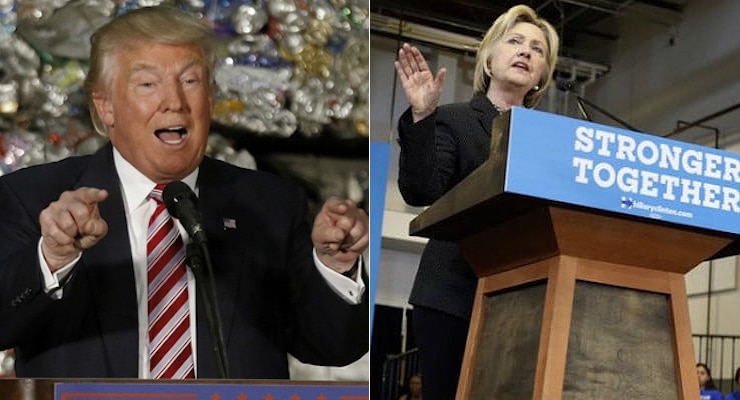
On Sept. 30, the end of fiscal year 2016, the national debt is projected to reach $19.3 trillion.
With spending on the four biggest budget items — Medicare, Medicaid, Social Security, defense — rising, and GDP growing at 1 percent, future deficits will exceed this year’s projected $600 billion.
National bankruptcy, then, is among the existential threats to the republic, the prospect that we will find ourselves in the not-too-distant future in the same boat with Greece, Puerto Rico and Illinois.
Yet, we drift toward the falls, with the issue not debated.
Ernest Hemingway reminded us of how nations escape quagmires of debt: “The first panacea for a mismanaged nation is inflation of the currency; the second is war. Both bring a temporary prosperity; both bring a permanent ruin. But both are the refuge of political and economic opportunists.”
“Debauching the currency,” Lenin’s depiction, is the way we will probably destroy the debt monster.
Hemingway’s second option, war, appears to be the preferred option of the war chiefs of the Beltway’s think-tank archipelago, who see in any Putin move in the Baltic or Black Sea casus belli.
What our Cold War leaders kept ever in mind, and our War Party scribblers never learned, is the lesson British historian A. J. P. Taylor discovered from studying the Thirty Years War of 1914-1945:
“Though the object of being a Great Power is to be able to fight a Great War, the only way of remaining a Great Power is not to fight one.”
Another existential threat, if Western man still sees himself as the custodian of the world’s greatest civilization, and one yet worth preserving, is the Third-Worldization of the West.
The threat emanates from two factors: The demographic death of the native-born of all Western nations by century’s end, given their fertility rates, and the seemingly endless invasion of the West from Latin America, Africa, Asia and the Middle East.
Concerning the demographic decline and displacement of Western man by peoples of other creeds, cultures, countries, continents and civilizations, there is an ideological clash within the West.
Some among our elites are rhapsodic at the change. Worshiping at the altars of diversity and equality, they see acquiescing in the invasion of their own countries as a mark of moral superiority.
Angela Merkel speaks for them, or did, up to a while ago.
To those who believe diversity — racial, ethnic, religious, cultural — is to be cherished and embraced, resistance to demographic change in the West is seen as a mark of moral retardation.
Opponents of immigration are hence subjects of abuse — labeled “racists,” “xenophobes,” “fascists,” “Nazis” and other terms of odium in the rich vocabulary of Progressive hatred.
Yet, opposition to the invasion from across the Med and the Rio Grande is not only propelling the Trump movement but generating rightist parties and movements across the Old Continent.
It is hard to see how this crisis resolves itself peacefully.
For the hundreds of millions living in Third World tyranny and misery are growing, as is their willingness to risk their lives to reach Europe. And national resistance is not going to dissipate as the illegal immigrants and refugees come in growing numbers.
What the resisters see as imperiled is what they treasure most, their countries, cultures, way of life and the future they wish to leave their children. These are things for which men have always fought.
And, in America, is diversity leading to greater unity, or to greater rancor, separatism and disintegration? Did anyone imagine that, 50 years after the civil rights laws, we would still be having long hot summers in Ferguson, Baltimore and Milwaukee?
The crisis that South Carolina statesman John C. Calhoun had posthumously predicted in his “Disquisition on Government” has also come to pass.
The country would divide into two parties, Calhoun said. One would be the party of those who pay the taxes to government, the other the party of those who consume the benefits of government.
The taxpayers’ party would engage in constant clashes with the party of the tax-consumers.
In 2013, the top 1 percent of Americans in income paid 38 percent of all income taxes. The bottom 50 percent of income-earners, half the nation, paid only 3 percent of all income taxes.
A question logically follows: If one belongs to that third of the nation that pays no income taxes but receives copious benefits, why would you vote for a party that will cut taxes you don’t pay, but take away benefits you do receive?
Traditional Republican platforms ask half the country to vote against its economic interests. As a long-term political strategy, that is not too promising.
During the New Deal, FDR’s aide Harold Ickes, declared in what became party dogma, “We shall tax and tax, spend and spend, and elect and elect.”
And so they did, and so they do. But this is a game that cannot go on forever.
For, as John Adams reminded us, “There never was a democracy yet that did not commit suicide.”







